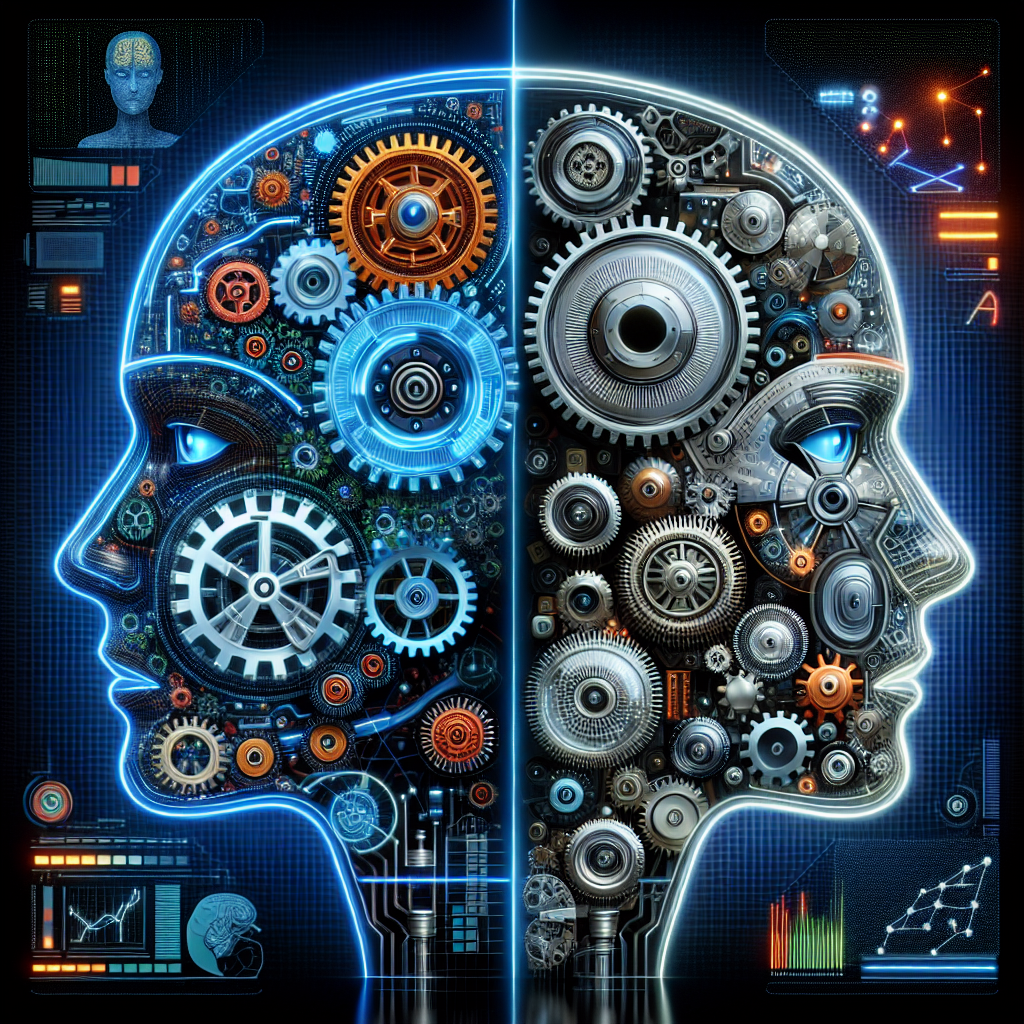Artificial General Intelligence (AGI) and Artificial Intelligence (AI) are terms often used interchangeably, but they actually represent distinct concepts with important implications for the future of technology. In this article, we will explore the differences between AGI and AI and discuss their potential impact on society.
Artificial Intelligence (AI) refers to the simulation of human intelligence processes by machines, such as learning, reasoning, problem-solving, perception, and language understanding. AI systems are designed to perform specific tasks within a set scope, using algorithms and data to make decisions and perform actions without human intervention.
On the other hand, Artificial General Intelligence (AGI) aims to create machines that can understand, learn, and apply knowledge in a way that is similar to human intelligence. AGI systems are designed to be capable of generalizing across different tasks and domains, adapting to new situations, and reasoning about abstract concepts.
While AI has made significant advancements in recent years, particularly in areas like machine learning, natural language processing, and computer vision, it still falls short of achieving the level of intelligence and versatility that AGI aims to achieve. AI systems are limited to performing specific tasks within their programmed scope, while AGI systems have the potential to understand and learn from a wide range of tasks and domains.
The differences between AGI and AI have important implications for the future of technology and society. AGI has the potential to revolutionize industries and change the way we live and work, with applications in fields like healthcare, finance, transportation, and entertainment. AGI systems could automate complex tasks, make faster and more accurate decisions, and even discover new knowledge and insights that humans may have overlooked.
However, the rise of AGI also raises concerns about its potential impact on society. AGI systems could outperform humans in many tasks, leading to job displacement and economic inequality. There are also ethical and safety concerns surrounding the development of AGI, such as the risk of unintended consequences or the potential for misuse by malicious actors.
In contrast, AI systems are already being used in a wide range of applications, from virtual assistants and recommendation systems to autonomous vehicles and medical diagnosis. While AI has the potential to improve efficiency, productivity, and convenience in many areas, it also poses challenges related to bias, privacy, security, and accountability.
As technology continues to advance, the distinction between AGI and AI will become increasingly important. While AI systems are currently more prevalent and practical in the real world, the development of AGI could have far-reaching implications for the future of technology and society. It is essential for researchers, policymakers, and industry leaders to consider the ethical, social, and economic implications of AGI and AI and work together to ensure that these technologies are developed and deployed responsibly.
In conclusion, AGI and AI represent distinct concepts with important implications for the future of technology and society. While AI systems are currently more prevalent and practical in the real world, the development of AGI could revolutionize industries and change the way we live and work. It is essential for researchers, policymakers, and industry leaders to consider the ethical, social, and economic implications of AGI and AI and work together to ensure that these technologies are developed and deployed responsibly.
FAQs
Q: What is the difference between AGI and AI?
A: Artificial General Intelligence (AGI) aims to create machines that can understand, learn, and apply knowledge in a way that is similar to human intelligence, while Artificial Intelligence (AI) refers to the simulation of human intelligence processes by machines, such as learning, reasoning, problem-solving, perception, and language understanding.
Q: What are the potential applications of AGI and AI?
A: AGI has the potential to revolutionize industries and change the way we live and work, with applications in fields like healthcare, finance, transportation, and entertainment. AI is already being used in a wide range of applications, from virtual assistants and recommendation systems to autonomous vehicles and medical diagnosis.
Q: What are the ethical concerns surrounding AGI and AI?
A: There are ethical concerns surrounding the development of AGI and AI, such as the risk of unintended consequences, job displacement, economic inequality, bias, privacy, security, and accountability. It is essential for researchers, policymakers, and industry leaders to consider these concerns and work together to ensure that these technologies are developed and deployed responsibly.

